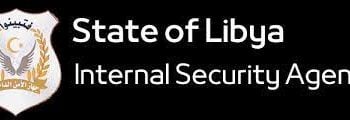By Libya Herald staff.
Tunis, 9 March 2015:
Libya’s internationally recognised parliament, the House of Representatives (HoR), is expected to set strict conditions . . .[restrict]before agreeing a government of national unity, said one of parliament’s delegates at ongoing UN peace talks.
Saleh Huma, a member of the HoR delegation at UN-mediated political talks now taking place in Morocco, said the parliament must retain ultimate authority over any such government.
United Nations Special Mission to Libya envoy Bernadino Leon has urged both the HoR and Libya Dawn to agree a unity government as a means of ending the country’s crippling civil war.
Huma said he expected his fellow members to be open to the idea, but only if the HoR, elected last June and granted international recognition, had legislative authority over it.
“Recognition of the legitimacy of the parliament (HoR) – this is a red line that cannot be crossed,” he said. “There has to be a supervision body for a unity government. This should be the elected parliament.”
The rival General National Congress (GNC) controlling Tripoli has indicated it would refuse to accept such a condition, arguing that it, not the HoR, is the supreme Libyan authority.
Huma stressed that final decisions on any deal rested with the HoR itself, but said another key condition would probably be that militias withdraw from Tripoli before, and not after, any unity government begins work.
He said many in the HoR feared a repeat of pre-war conditions in Tripoli, when militias several times stormed parliament and a former prime minister was kidnapped.
“Militias must withdraw from Tripoli before we discuss a unity government,” he said. “We don’t want a government in Tripoli under threat from the militias, with the possibility of kidnappings and violence, remembering what happened with (former prime minister) Ali Zaidan who was kidnapped.”
Huma also urged the international community not to agree war crimes immunity for militias.
“No-one can give immunity to Libya Dawn because Libya Dawn have destroyed public facilities. They have invaded the capital. They destroyed one of the biggest institutions, the national airport. They have shattered the social cohesion. It is a judicial matter. Militias who committed crimes should be brought to account.”
Three days of UN peace talks ended on Saturday in Morocco with both Libya Dawn and the HoR agreeing to resume discussions this Wednesday.
Huma said the HoR delegation was returning to Tobruk to make its report, and would journey back for further talks in Morocco this week.
He also said he would also be seeking information from British ambassador Michael Aron about comments from the UK ambassador to the UN in New York, Sir Mark Lyall Grant, who told a TV interviewer earlier this month that “only Misrata militias” were battling Islamic State (IS) units in Libya.
“The thing that makes us suspicious is the statement of the British representative of the UN when he said Misrata is the only one fighting IS. This is not correct.”
Huma said that while HoR delegates were appreciative of the UN’s efforts, they were seeking clarification from the international community about whether it still supported democracy.
He insisted the HoR, whose election was supervised and approved by the UN last June, leading to international recognition, represented the will of most Libyans and should be supported, and accused Libya Dawn of taking up arms after election losses.
Libya Dawn reject this idea, saying a supreme court hearing in Tripoli last November invalidated the HoR in favour of the GNC.
Huma insisted the supreme court decision was made under duress with militias occupying Tripoli, and called on outside powers not to support Libya Dawn who he insisted had rebelled against the legitimate authority.
“What the international community is saying right now is if you lose the election through the polling stations, then you can brandish your weapons and the United Nations will find a solution for you,” Huma said. [/restrict]









